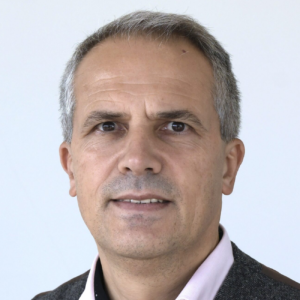As soon as the conversation turns about the refugees, the tension increases. We Christians are not spared from such tensions. In the following article, I would like to give first a brief analysis and categorization of current developments (mostly out of Germany, the country I work currently). In a second part, I will then try to outline some “tasks” that arise for us Christians as a result.
The images from 2015 and the vanished euphoria
What powerful images we saw in August and September 2015! Hundreds of thousands of refugees on the so-called “Balkan route”, on foot, with a suitcase or bag containing all their belongings; among them many women and children.
Back in 2015, when German Chancellor Angela Merkel made the decision to open the border and allow refugees to enter Germany, almost everyone was of the opinion: “Yes, that was the right decision.” And that’s why many people tried to get involved and provide support. Angela Merkel was almost considered a “hero” and was politically unchallenged: She was supported by the left (with their ideology of the International), by the Greens (with their multicultural mentality), by the Socialists (with their emphasis on “social justice”) and by the Christian Union (with the Christian value of charity). The only ones who were against it were the AFD (a rightwing political Party in Germany). Everyone else felt like winners. For a few weeks, there was great euphoria in Germany. And almost everyone believed in the phrase “We can do it!”; some even nominated Angela Merkel for the Nobel Peace Prize.
A lot has happened since then and there is no longer any sign of the euphoria; on the contrary, today, almost every political Party is against the refugees. Today, the talk is of limitation and demarcation.
What has happened? Why this change in attitude towards refugees? In the meantime, many have come to realize, that these people bring completely different values with them, many of them barely speak German and many are even illiterate. Then, there were the terrorist attacks in many European cities as well as any-semitic protests in the streets of “Christian Europe”.
Observations
Here I would like to share some observations that we have made over the last ten years. I should mention that I lead the “Love@Work” mercy ministry branch of our mission. I am also part of the convening team of YWAM Europe Refugee Circle (below more about YRC). In this context, we have since dealt with thousands of refugees, many of whom have told us about their difficult fates and their problems in dealing with the authorities and the support system in Germany.
The following three observations have helped me to understand why the integration of refugees and migrants is very difficult.
1. Efficiency verses relationships
It can certainly be said that we Germans generally give great importance to acting in a time-, goal- and process-orientated manner. Efficiency is very important to us. In contrast, refugees are not familiar with this to the same extent; instead, they come with a relationship-orientated culture. Many things are passed on in the context of relationships, for example knowledge, language, culture, and even profession. There are an incredible number of “programs” offered for refugees in Germany, including integration and language courses, but they seem to be ineffective. Why is that? Because the relationship aspect is largely missing. After the German class, the refugees go back to their asylum centers, where they again only speak Arabic, Dari, Persian or English. Where do they get the opportunity to practice what they have learned?
2. The relation towards institutions
In Germany, we, generally trust our institutions. The “state officer” still enjoys our trust; what he says is done. But this is not the case for refugees. They come from countries where there is a lot of corruption. In this case, it is no surprise to anyone that there is no trust in institutions. After all, they have fled from such corrupt and dictatorial governments and institutions. That is why they find it difficult to trust our politicians and the state officers and this way they isolate themselves.
3. The religious aspect
Germany is characterized by the Christian-Jewish faith tradition and the Enlightenment. Romano Prodi (well-known Italian politician) summarized this as follows: “Europe is built on three hills: Acropolis, Capitol and Golgotha!” – meaning: Greek thinking, Roman application of law and the death and resurrection of Jesus. Most refugees, on the other hand, come from a region characterized by Islam or other religions. All their lives, the Christian West has been portrayed as negative or even as “unbelieving”. When they come here, it naturally takes some time for them to understand what Christians truly believe.
What does that mean for us?
These three observations give me the confidence that we Christians have a unique contribution to make. When most people hear the term “social network”, they probably first think of the virtual social networks in internet. But the largest and best-functioning social network in Germany (and generally in Europe) is the church. This network, which functions relationship-oriented, is best suited and able “to catch” these people coming to us. We are explicitly commanded by God to love and care for foreigners: “If a foreigner settles among you, you shall not exploit him. You shall treat the foreigner who lives with you as one of your own and you shall love him as yourself. For you yourselves were once foreigners in Egypt. I am the Lord your God.” (Lev. 19:33-34)
However, it seems to me that Christians have simply shifted this command from God entirely to charity institutions, such as “The Red Cross” “Diakonie”, “Charitas” etc. The focus of such organizations is naturally not primarily on proclaiming the good news of Jesus Christ. But that is precisely the point I want to make here: it was this good news of the Gospel that once changed and shaped the cultural area that today we refer to as “the Western world”.
In addition, each employee in these charity organizations is responsible for hundreds of refugees. The paperwork requires a lot of time and attention, leaving little time or energy for friendship and fostering relationships. That is why I see this as a major task for the church of Jesus Christ to reach out to these refugees and migrant with both hands: with one to help meet their practical needs and with the other share the gospel of salvation.
Has God answered our prayers?
I know quite a few Christians who have prayed particularly hard for Muslim countries, because these countries were very difficult for Christian missionaries to reach. Could it be that God has answered our prayers for the Islamic world, but his answer looks a little different than we first thought? Could it even be that the refugees are a gift for our societies? If this is the case, then the old saying “crises are opportunities” also applies here. The community must rethink and relearn to open its hearts and doors and seize this opportunity.
What is YRC?
With thousands displaced, and thousands more on the move, the refugee crisis is far from over. YRC’s mission is to mobilize the YWAM family by facilitating teams that want to respond to a harvest that is ready. Our desire is to empower refugees and migrants spiritually, mentally, socially, emotionally, and physically on their journey to safety and a new home.
Over the past 9 years we have organized gatherings in Germany, UK, Greece, Italy, Netherlands, Gibraltar etc. with the goal of networking among the different YWAM bases and equipping for the task through teaching and testimonies.
The next opportunity to connect is…
The author: Sokol Hoxha (55), married and father of four children, grew up in Albania, studied mechanical engineering at the Technical University of Tirana and has lived in Germany since 1993. He has been in different leadership responsibilities in YWAM Hurlach (The castle) for many years and is an intercultural coach and an elder in YWAM.
Sokol Hoxha (55), married and father of four children, grew up in Albania, studied mechanical engineering at the Technical University of Tirana and has lived in Germany since 1993. He has been in different leadership responsibilities in YWAM Hurlach (The castle) for many years and is an intercultural coach and an elder in YWAM.



